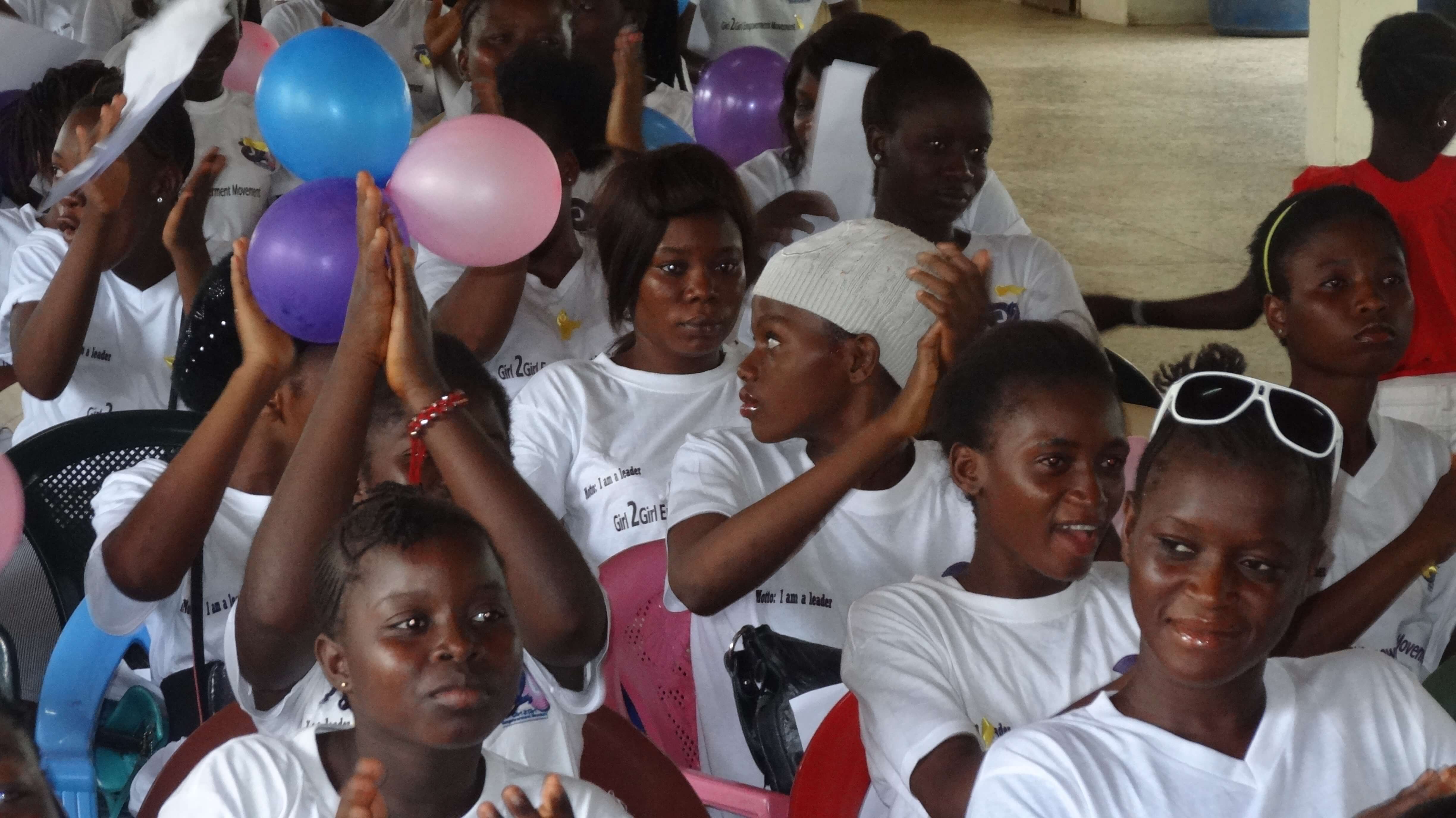Sierra Leone: Commission Launches First Human Rights Report
A barefoot girl watches expressionless as men clad in expensive suits and women in designer clothes make their way on foot to the Community Centre in Kroo Bay, Freetown. They are here to launch the first ever State of Human Rights Report for Sierra Leone; Zainab, 12, is in the midst of another day on the narrow, muddy streets of the area, selling groundnuts to help support her family.
Home for her is the warren of patchwork wood and tin dwellings that sits at the bottom of the west end of the Sierra Leonean capital, Freetown. The paths in Kroo Bay are of hardened dirt that turns to mud during the rainy season. There are no sewage pipes or water mains beneath them and they are too narrow for a car to travel.
Children bare to the waist play in the mud. Most of them, like Zainab, will never see the inside of a school. Babies strapped to their mothers’ backs cry as if they knew how many among them will not survive to see their fifth birthday. The community’s 10,000 residents are served by a single clinic.
“This community is a microcosm of the entire Sierra Leone, where 75 percent of the population is poor according to the country’s Poverty Reduction Strategy Paper. A fitting place to launch the State Of Human Rights Report in Sierra Leone 2007,” said The Minister of Presidential Affairs Alpha Kanu at the August 21 launch in Kroo Bay.
Two years after it was established as an act of parliament, the Human Rights Commission of Sierra Leone (HRCSL) has released its first report. It is not encouraging reading.
It finds that Sierra Leoneans face pulverising poverty as economic justice eludes them.
The commissioners found that cases of rape and domestic violence are not adequately prosecuted; that female genital mutilation remains prevalent in the country; and that women are discriminated against and need better access to justice.
They report that the overall administration of justice remains severely compromised by inadequate training, resources, and infrastructure. The death sentence is still mandatory for treason and murder, and discretionary for aggravated robbery. Conditions in prisons and other detention centers throughout the country are appalling.
And Sierra Leone is still recording maternal mortality rates at 1800 per 100,000 live births and infant mortality rates of 170 per 1,000.
The Human Rights Commission maintains “this national public health emergency is not being treated with the seriousness it deserves” and states that “the government is under a positive obligation according to national and international human rights law to take the necessary steps to reduce these high levels.”
The Anti-Corruption Commissioner, Abdul Tejan Cole, pointed out that the country has a lot left to do to meet its economic, cultural and social rights obligations.
While critical of libel laws held over from the Public Order Act of 1965 under which journalists can readily be criminalised and imprisoned, the report observes there has been “much progress in the observance of the freedom of expression”.
Licenses were granted to several radio stations and newspapers throughout the country and the Independent Media Commission (IMC) held a series of training seminars and workshops for journalists to raise standards of investigation and reporting.
The report also notes “government was tolerant and accommodating to musicians who produced songs, many of which are critical of members of the government, and the prevailing socio-economic and political situation”.
Taking the shine off this commendation was the temporary closure of a radio station in Yele for criticizing government, and a member of parliament reportedly shutting down the community radio station in Pujehun for broadcasting opposing views.
The Presidential Affairs Minister praised the report and promised that his government will work assiduously to change this status quo in the country.
Edward Sam, the Vice Chairperson of the HRCSL, pointed out that to produce the report had posed a serious challenge for the Commission. He explained that they had logistical constraints, like the availability of vehicles to facilitate field work especially for timely investigation.
He said that the availability of financial support for the Commission’s operations largely depends on external donor support mostly from the U.N. Peace Building Fund.
“This is a crucial issue which needs to be urgently addressed by the government in order to ensure the sustainability of the Commission when donor funding folds up,” said Commissioner Sam.
Will it matter?
The flurry of activity around the State of Human Right Report launch has likely already faded in the minds of Zainab and the thousands of other residents at Kroo Bay who are unlikely to ever see the contents of the report or understand its potential importance.
When the ministers returned to their cars and drivers, Kroo Bay resumed its hardscrabble existence. Yet these are the people who most urgently need the government to deliver on its promises to work towards an adequate standard of living, including adequate food, clothing and housing, and to the continuous improvement of living conditions for all Sierra Leoneans.
The report strongly recommends the implementation of recommendations of Sierra Leone’s Truth and Reconciliation Commission, including an unequivocal apology to women on behalf of past and present governments for their suffering during the conflict in the country, and the enactment of legislation for political parties to ensure that at least 30 percent of their candidates for public elections are women. However the TRC’s recommendations are yet to be fully implemented.
The Chairperson of The HRCSL, Mrs Jamesina King said the report will be a catalyst.
“The vulnerable groups would definitely get access to the report through community radio and they would also know that their deplorable living conditions and the violations experienced are being recognized and discussed. They will debate in market places, their homes and then they will begin to make leaders accountable.”
Author: Mohamed Fofanah
Source: IPS – 27 August 2008

